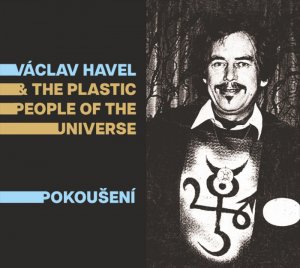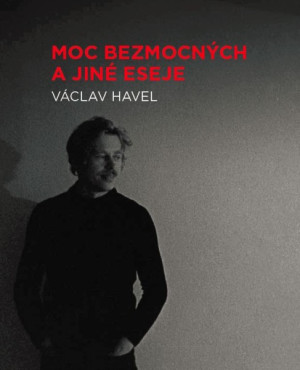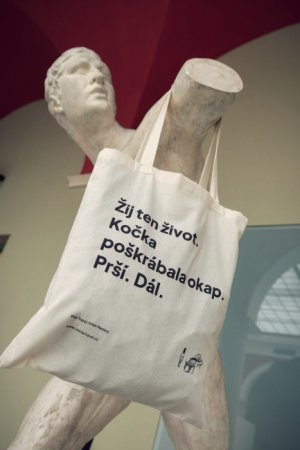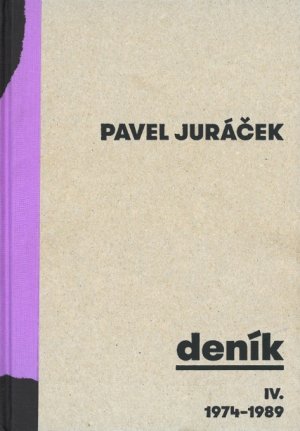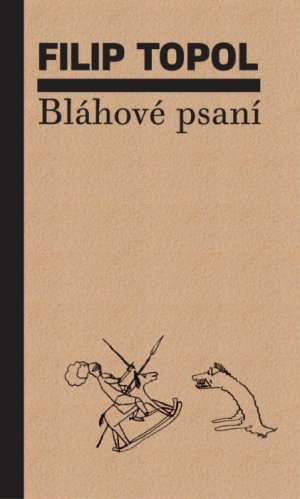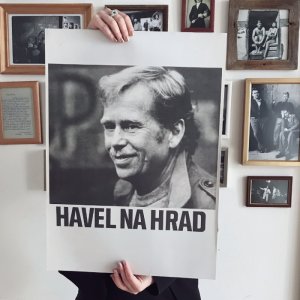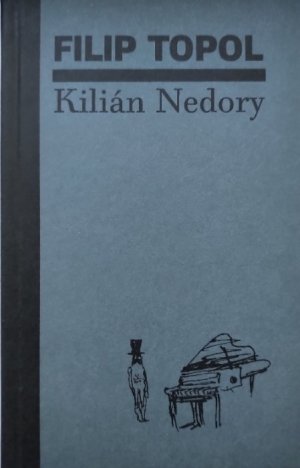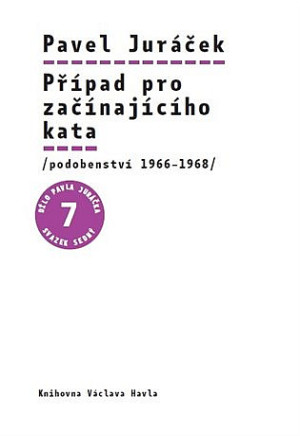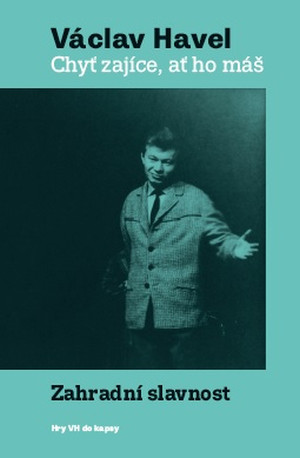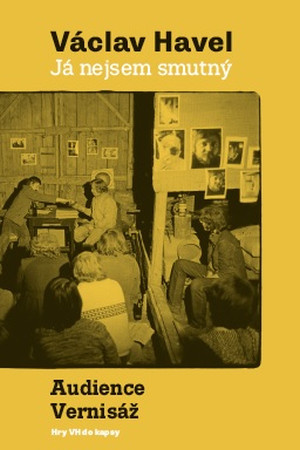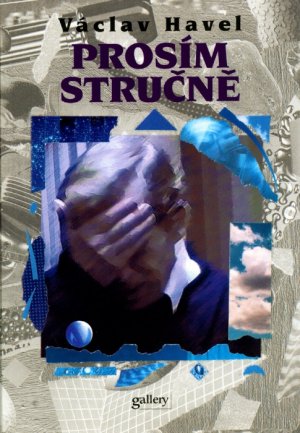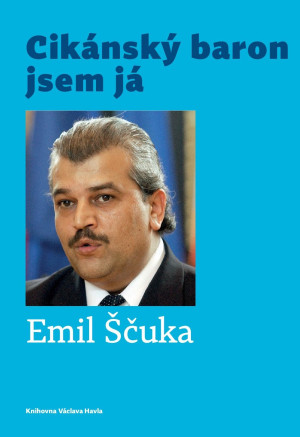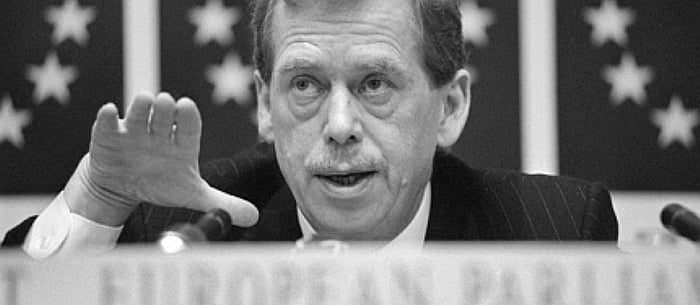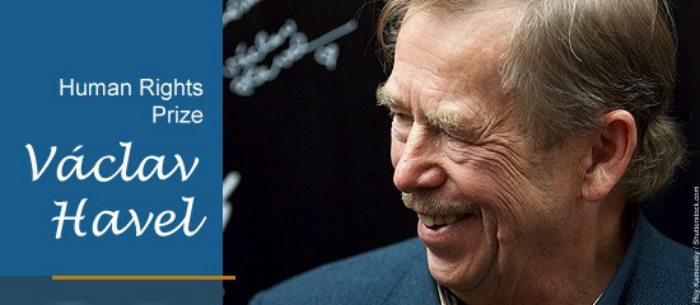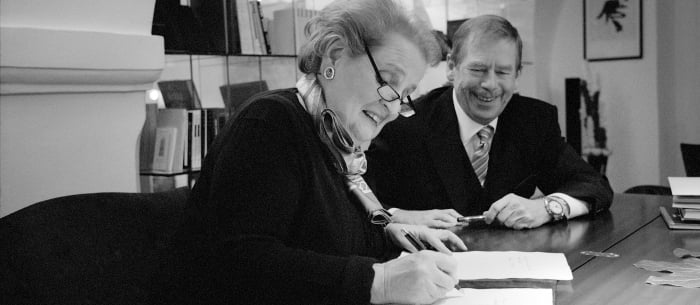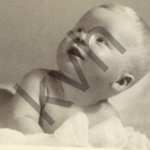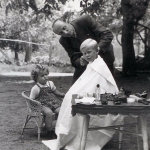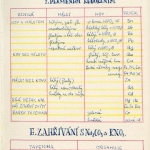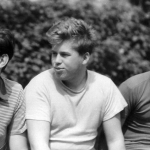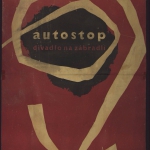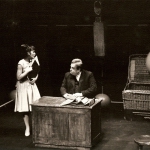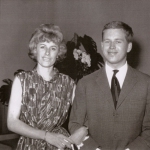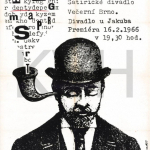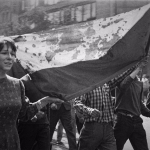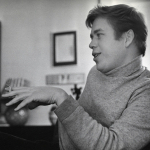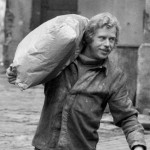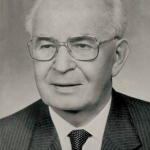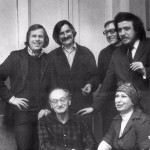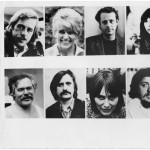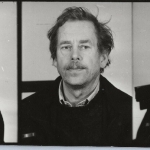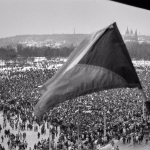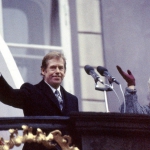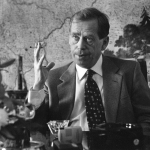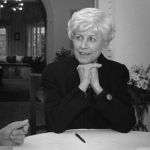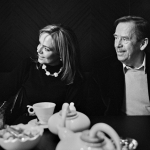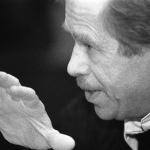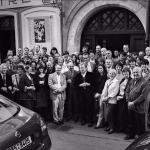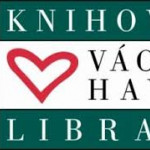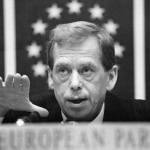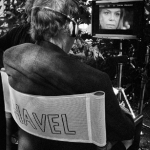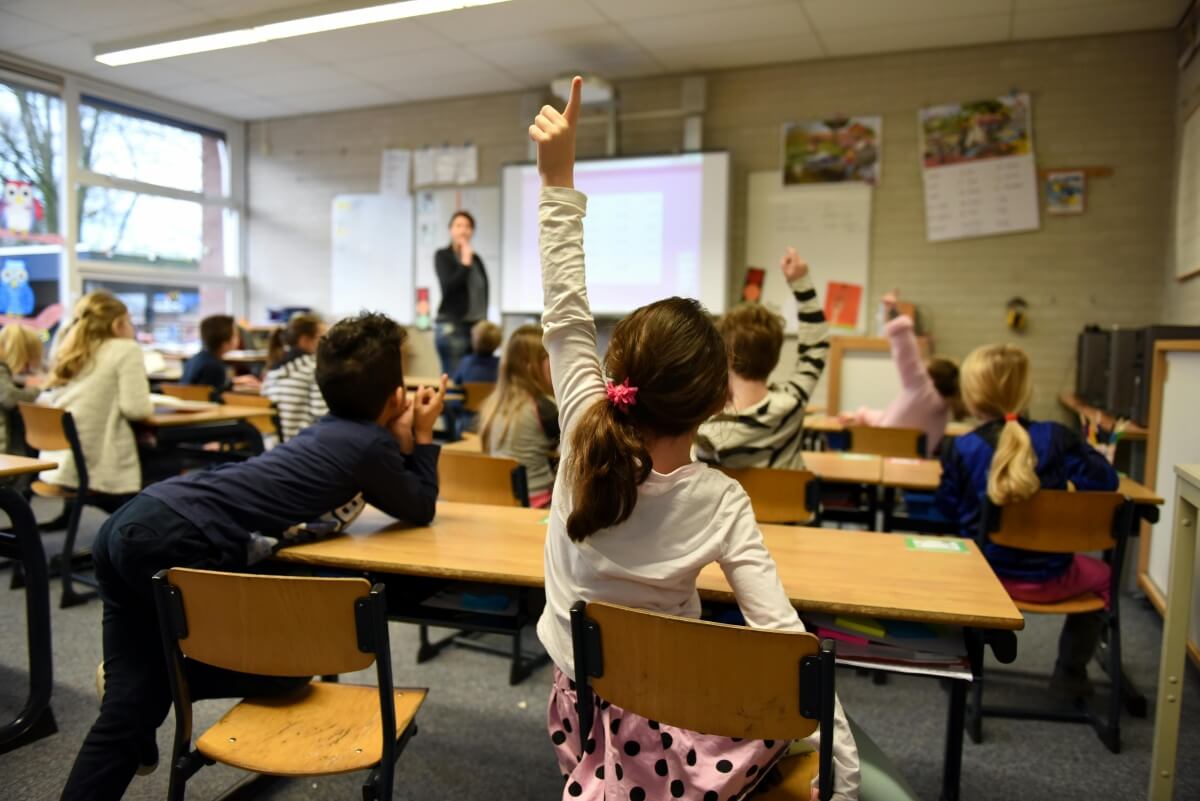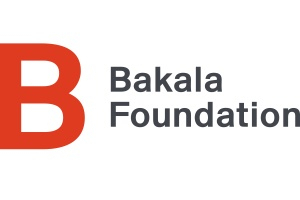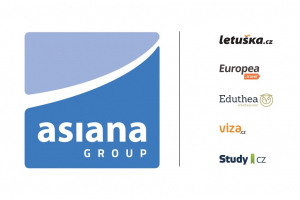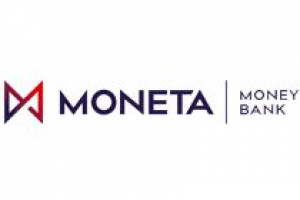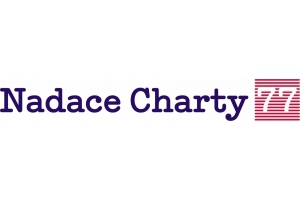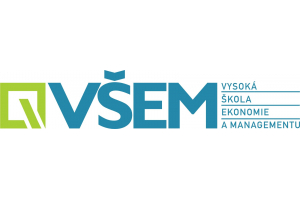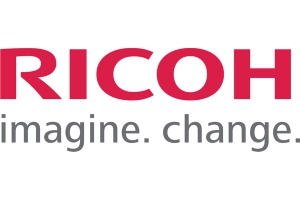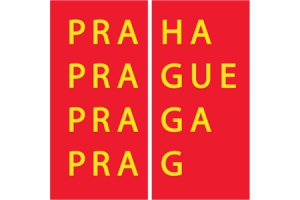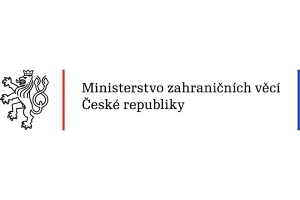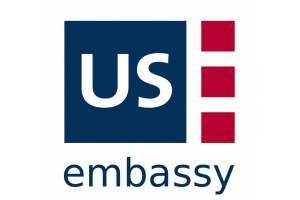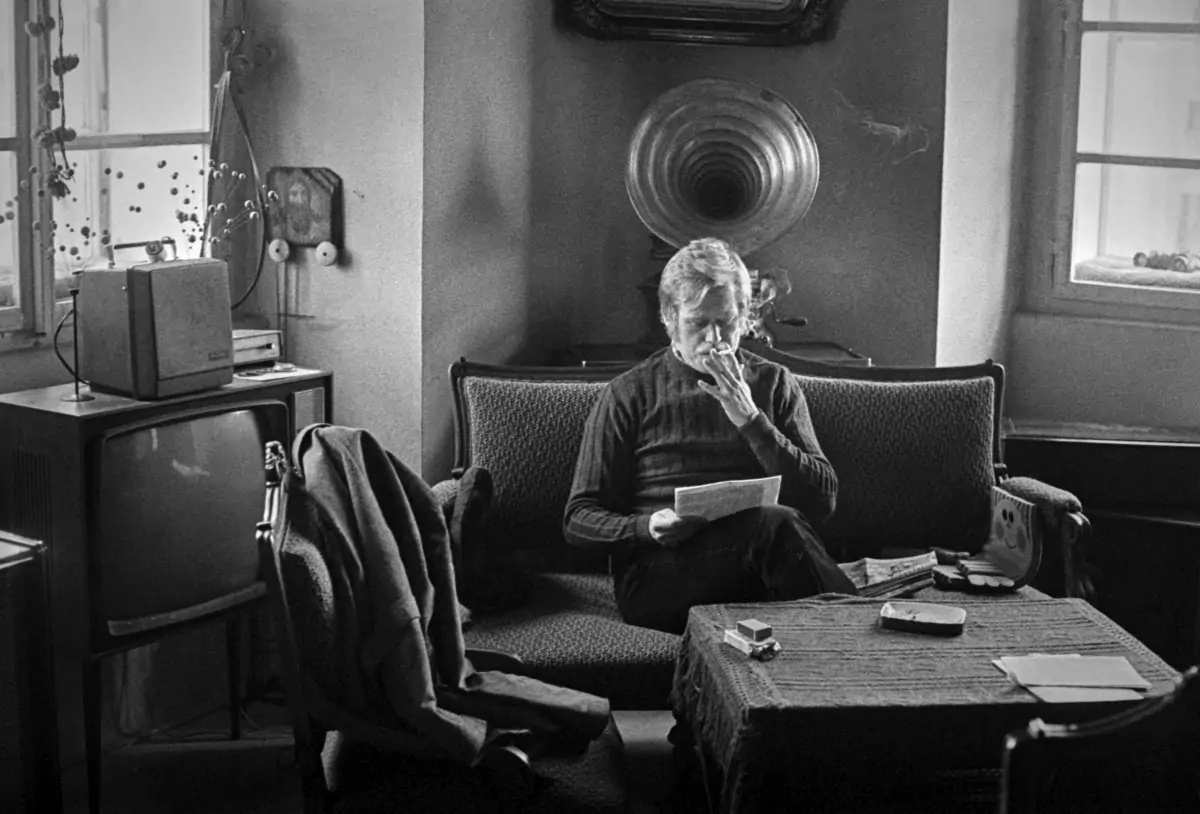
Club / News / Program
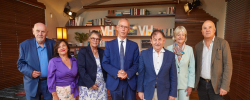
Three candidates shortlisted for the 2023 Václav Havel Prize 05/09/23
The selection panel of the Václav Havel Human Rights Prize, which rewards outstanding civil society action in defence of human rights in Europe and beyond, has today announced the shortlist for the 2023 Award. Meeting in Prague today, the panel – made up of independent figures from the world of human rights and chaired by the President of the Parliamentary Assembly of the Council of Europe (PACE) Tiny Kox – decided to shortlist the following three nominees, in alphabetical order: More
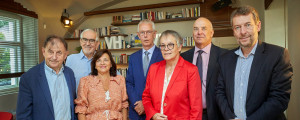
Three candidates shortlisted for the 2022 Václav Havel Human Rights Prize 06/09/22
The discussion among the seven-member jury helmed by the president of the Parliamentary Assembly of the Council of Europe centred on the importance of the issue of human rights during this tense period. The finalists include Vladimir Kara-Murza, a political prisoner and leading Russian democracy campaigner; Ukraine’s 5 AM Coalition, which gathers evidence of human rights abuses stemming from Russia’s invasion of the country; and Hungary’s Rainbow Coalition defending LGBTQIA+ rights. “This year’s selection reflects the central role that human rights play in the current European crisis,” says Michael Žantovský, jury member and executive director of the Václav Havel Library, which bestows the prize in cooperation with the Parliamentary Assembly of the Council of Europe and Nadace Charty 77.
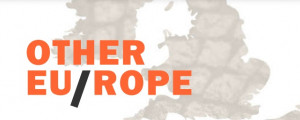
The Other Europe 27/04/22
Dear Friends, After three years we have completed the international project The Other Europe, during which, in cooperation with partner institutions, we have processed and made public recordings of interviews shot in 1987 and 1988 behind the Iron Curtain, and in exile, with important representatives of the opposition and the arts, as well as random citizens. Over those three years we have prepared video, audio and text of 106 interviews in speakers’ native languages and English translation. Despite public health restrictions in the Covid period, we have jointly prepared 16 international conferences and public presentations in six Central and Eastern European states. More
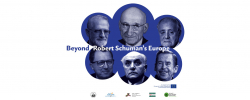
From Schuman to Havel – what next? 16/02/22
The Václav Havel Library is a proud partner of the project Beyond Robert Schuman’s Europe More
Program for May 2013<>
entry-free
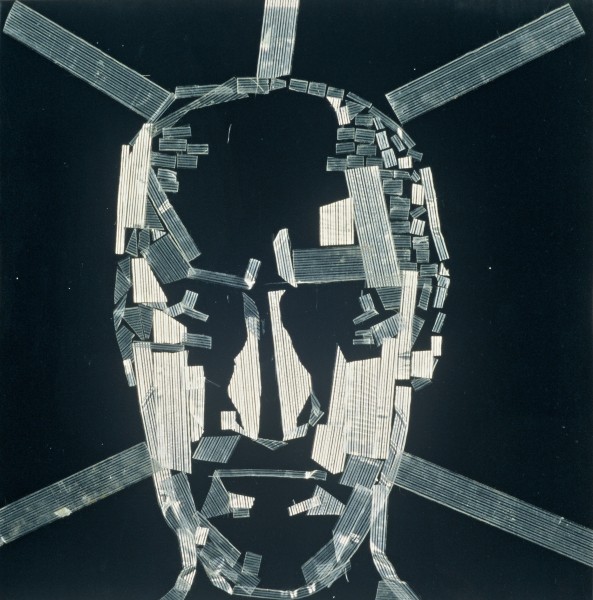
KW: Personal Apocalypse
- Where: Montmartre Gallery
- When: April 30, 2013, 19:00 – May 26, 2013, 18:00
Igor Korpaczewski (born Prague, 1959), who studied at Prague’s Academy of Fine Arts between 1983 and 1989, ranks among the most unmistakable solitary artists of the ‘80s generation. He focuses systematically on the different options offered by figural depiction, which occasionally results in work that is even conceptual. Operating under the pseudonyms KW and Q, he has taken part in many projects, both at home and abroad, since the 1980s. For two decades he has been an assistant at Jiří Sopek’s studio at the Academy of Fine Arts, where his marked influence on a younger generation of artists can be seen.
At Galerie Montmartre, Igor Korpaczewski is presenting paintings from the last 20 years that reflect the title Personal Apocalypse. Silhouettes of individual figures run through all of his canvasses – simple motifs of figures shut off in their own world and space. Though they may be depictions of concrete people, they do not aim to be “realistic” portraits. Figures, living in their own universe and transfixed via their own suffering to the thread of life, look outwards. Their stories, hidden behind the pictures, create a mirror for the viewer, while their general types and unstated roles allow for self-reflection within the “I–you” relationship shorn of a symbolic context.
Another very strong aspect of the pictures is their formal expression, with Korpaczewski moving between two distinct poles: the strong modelling illusion and elements of abstraction leading to surface expression. Despite the tension of various stains, colours and rhythms, together they create a harmonious whole. Through minor details in a figure’s face, for instance, Korpaczewski allows us to look into their (or our?) interior.
In Greek, apocalypse means revelation or disclosure. In this context, the Korpaczewski exhibition can be understood as a metaphor for the struggle for survival in everyday life. The possibility of detecting leaks into our invented worlds; of looking reality in the eye.
In that respect the words of Václav Boštík, which for Igor Korpaczewski also apply to his work, can be quoted here: “Pictures are just traces along the path that we’ve been down. They are a sign of the work on ourselves. They are questions, or answers to the questions we have posed.”
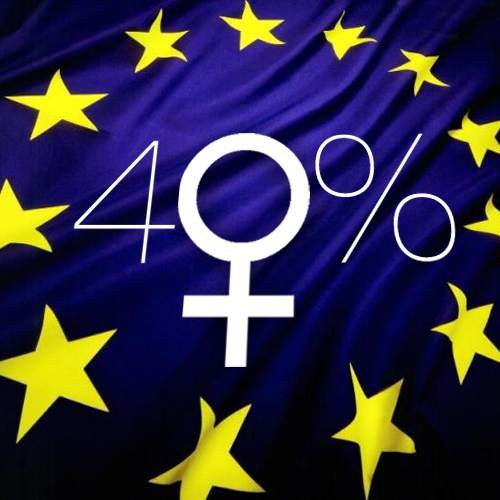
Feminism – Quotas, Yes or No?
- Where: Montmartre Gallery
- When: May 6, 2013, 18:00 – 20:00
Sociologists Linda Sokačová and Marcela Linková, politician Marek Benda, university teacher Petr Pavlík and lawyer and politician Hana Marvanová will debate the issue.
Journalist Saša Uhlová will chair the debate.
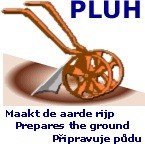
PLUH Prepares the Ground
- Where: Montmartre Gallery
- When: May 7, 2013, 19:00 – 21:00
The PLUH (Plough) agency, which represents Czech writers abroad, is celebrating 10 years of existence. In that period it has succeeded in publishing around 100 books in over 25 countries.
How to get ahead on the market? And does Czech literature have a chance in the world? Answers to these and similar questions will be provided during his lecture by the head of PLUH, Edgar de Bruin, who is a translator into Dutch and laureate of the Premia Bohemica Prize (2008).
A knees-up and general meeting of PLUH’s writers and supporters will follow, with Tomáš Zmeškal, Petra Hůlová, Patrik Ouředník, Emil Hakl, Tomáš Kolský, Miloš Urban, Markéta Pilátová, Filip Topol, Marek Šindelka and others among the invitees.
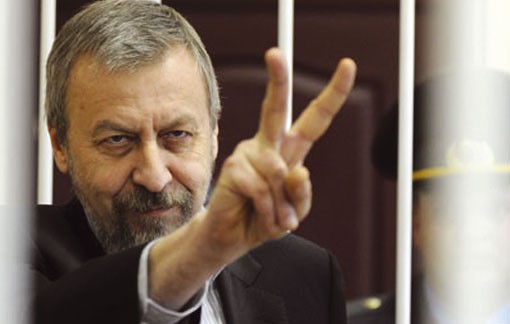
An Evening with Andrei Sannikov
- Where: Montmartre Gallery
- When: May 9, 2013, 19:00 – 21:00
Andrei Sannikov is a Belarusian dissident, former political prisoner and 2010 opposition presidential candidate. He has been granted political asylum in the UK and now lives in London. Sannikov is coming to the Czech Republic for the premiere of his play Flying Over the Rainbow. He and another nine imprisoned Belarusian dissidents were the addressees of a letter from Václav Havel in December 2011 that was the very last text Mr. Havel wrote before his death.
Andrei Sannikov will be introduced by the Belarusian Czech studies expert Sjarhej Smatrychenka, who will lead a discussion with him, while the playwright René Levinský will read excerpts from Flying Over the Rainbow. The main part of the evening will be devoted to a debate on literary, political and other May-related themes.
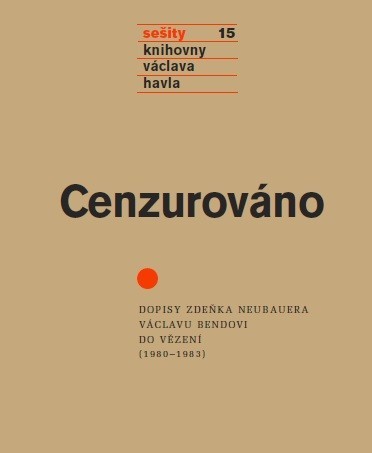
Presenting Censored and Dear Radim
- Where: Montmartre Gallery
- When: May 14, 2013, 19:00 – 21:00
Ceremonial evening presenting two collections from the Václav Havel Library Notebooks series. Cenzurováno (Censored) comprises letters Zdeněk Neubauer sent to Václav Benda during his 1980–1983 imprisonment. Milý Radime (Dear Radim) is the first publicly accessible edition of a collection originally published on the occasion of Radim Palouš’s 70th birthday.
Several members of the Kampademie, a revived Platonic academy located on Prague’s Kampa, have promised to attend.
Ivan M. Havel will host the evening.
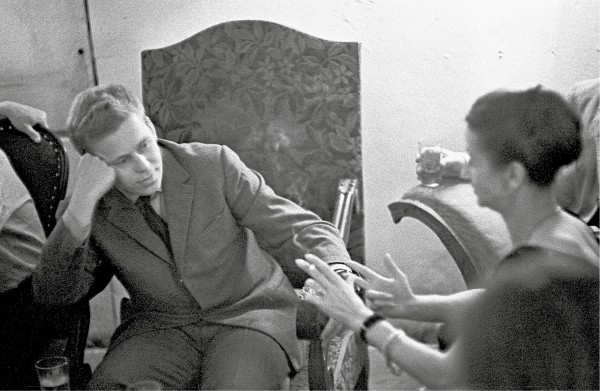
Havel Play
- Where: Montmartre Gallery
- When: May 15, 2013, 19:00 – 21:00
A dramatic composition of scenes from Václav Havel’s theatre plays on the subject of ménages à trois. Third-year students from the DAMU drama school will perform under the supervision of teacher Marie Málková.
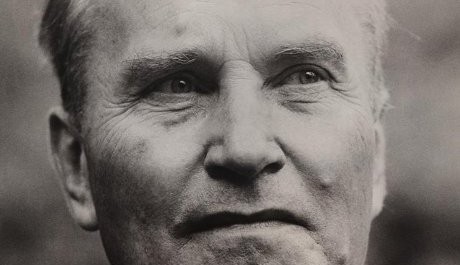
The Solidarity of the Shaken
- Where: The Běhal Fejér Institute, Pevnostní 8, 160 00 Praha 6
- When: May 15, 2013, 19:00 – May 16, 2013, 21:00
A two-day international seminar in English on the spiritual legacy of Václav Havel and Jan Patočka, in cooperation with the Centre for Phenomenological Research / the Jan Patočka Archive.
- Program of the seminar
- Participants bios
- The Final Report
- Video 1/8 Marta Smolíková: Foreword / Martin Palouš: Introductory Remarks
- Video 2/8 Jiří Přibáň: Socialist Legality and the Politics of “Dissent”
- Video 3/8 Glenn Hughes: Understanding the Principle of Inalienable Human Dignity
- Video 4/8 Josef Moural: Whose Solidarity? Which Shattering?
- Video 5/8 Ludger Hagedorn: Solidarity – But whose and for whom?
- Video 6/8 Henryk Syse: The Difficult Ethics of Communication and Ideological Difference: How to Uphold Human Dignity in the Face of Disagreement
- Video 7/8 Ivan Chvatík: Patočka’s Concept of the Solidarity of the Shaken and the Possibility of a Meaningful Existence
- Video 8/8 Jan Macháček: Without fun and humour, there would have been neither dissent nor solidarity of the shaken / Martin Palouš: Closing remarks
- Photographs
Role of the Czech Republic’s presidential office in the country’s foreign policy as it pertains to d
- Where: HUB Prague, Drtinova 10, 150 00 Praha 5
- When: May 15, 2013, 16:00 – 18:00
Panel and follow up discussion will focus on questions such as:
What is president’s role in articulating of foreign policy?
What impact do the vague competencies between the president and the Ministry of Foreign affairs have on perception of Czech Republic abroad?
How does the current situation differ from the past?
What does the constitution say about responsibility for foreign policy making?
What role do presidents play in foreign policy in other countries?
Can the president interpret foreign policy on his own?
Chair: Jan Machacek- Respekt weekly
Entry is free of charge.
The debate will be simultaneously translated into English.
Panelists:
Jiri Caslavka - Glopolis
Lubos Dobrovsky- former Czech ambassador to Moscow and former Czechoslovak Minister of Defence
Petr Drulak- Institute of International Relations, Prague
Jan Hamacek- Vice-Chairman, the Chamber of Deputies (CSSD)
Jan Kudrna- Faculty of Law, Charles University
Cyril Svoboda- former Minister of Foreign Affairs
Katerina Safarikova- Journalist
Josef Zieleniec- former Minister of Foreign Affairs
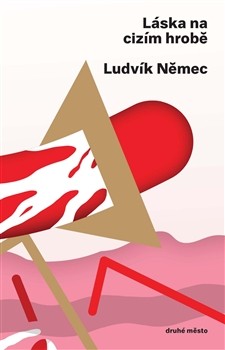
Ludvík Němec – Love on a Stranger’s Grave
- Where: Montmartre Gallery
- When: May 16, 2013, 19:00 – 21:00
After 19 long years, prose writer Ludvík Němec returns to literature with these masterful short stories in which the heroes of unusual events often careen from edgy erotica to impending death…exciting reading! Igor Bareš will read from the book.
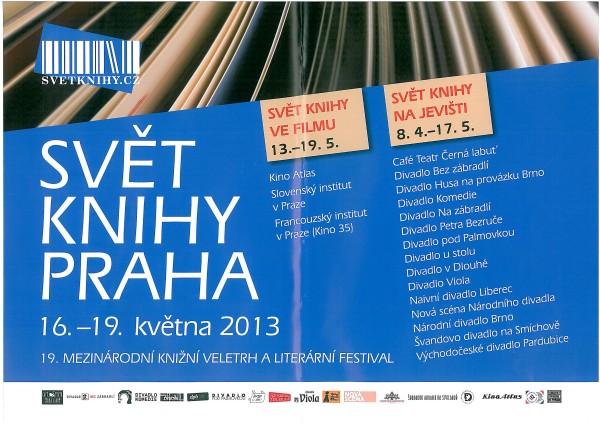
An Inspired Performance…live!
- Where: Výstaviště Praha - Holešovice, Areál Výstaviště 67, 170 90 Praha 7
- When: May 18, 2013, 14:00 – 16:50
The Václav Havel library presents the voices, faces, poems and songs of the underground: Vít Kremlička, Beatrice Landovská, J. H. Krchovský, Pavel Zajíček, Dáša Vokatá and others.
The event is taking place as part of the 19th Book World Prague international book festival.
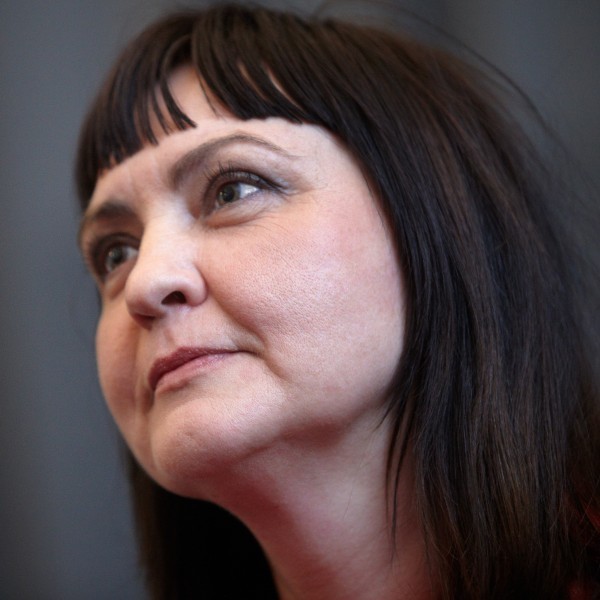
Krystyna Krauze: Tatar Aspirations
- Where: Montmartre Gallery
- When: May 20, 2013, 19:00 – 21:00
Screening of a film by the documentary maker Krystyna Krauz on the fate of the Crimean Tatars… Like all magical stories, it began in an ordinary way. A dream holiday in the Crimean, where we went to see the magical sea, beaches and vineyards and to enjoy the sun. Accommodation right by the sea seemed expensive to us, while the owners, Russians, weren’t likable. Somebody advised us to find accommodation in the interior, with Tatars…
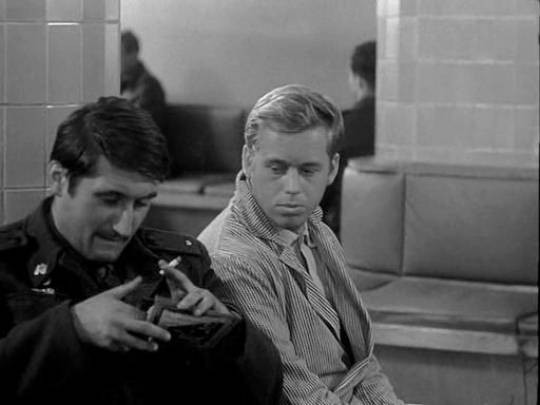
VHL Film Marathon V: Václav Havel and the Czechoslovak New Wave
- Where: Montmartre Gallery
- When: May 21, 2013, 18:00 – 23:30
Generational connections and shared starting points in terms of inspiration link Václav Havel to the Czechoslovak New Wave, and it is not widely known that he played a small role in one feature film. This VHL Film Marathon will present the young Václav Havel’s tiny acting performance as well as two pictures that represent the political and metaphorical currents present in Czech film in the 1960s.
Screenings:
Každý mladý muž (Every Young Man) (directed by P. Juráček, 1965, 83 min.)
Zahrada (The Garden) (directed by J. Švankmajer, 1968, 17 min.)
O slavnosti a hostech (A Report on the Party and the Guests) (directed by J. Němec, 1966, 68 min.)
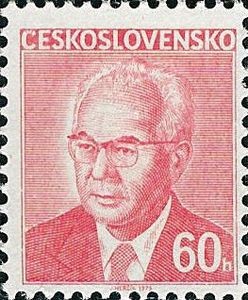
The 1970s and 1980s in Czechoslovakia
- Where: Slovak Institute, Jilská 16, Praha 1
- When: May 21, 2013, 18:00 – 20:00
Totalitarianism, post-totalitarianism or an authoritarian regime. A debate hosted by journalist and analyst Jan Macháček with Jiří Peňás, Ladislav Snopek, Anna Šabatová and Petruška Šustrová.
This Václav Havel Library discussion evening is being held in cooperation with the Slovak Institute in Prague.
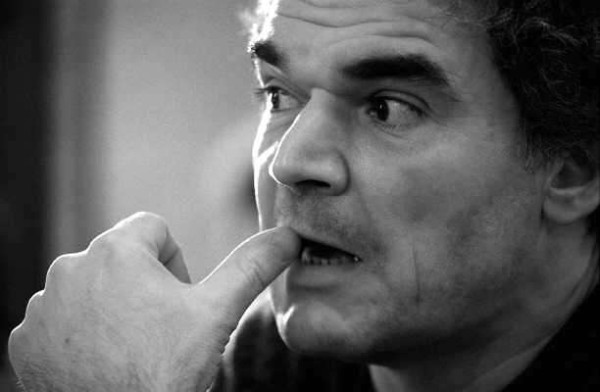
Patrik Ouředník – Free Space of Language
- Where: Montmartre Gallery
- When: May 22, 2013, 19:00 – 21:00
A very special literary evening with Patrick Ouředník, the most translated contemporary Czech author, on the occasion of the publication of his new book by the Torst publishing house.
“Do you take part in festivals, presentations, readings?”
“Sporadically.”
“Why’s that?”
“Because I think that ideally they shouldn’t exist at all.”
From an interview with Patrik Ouředník by Matěj Petrů (Souvislosti 1/2012).
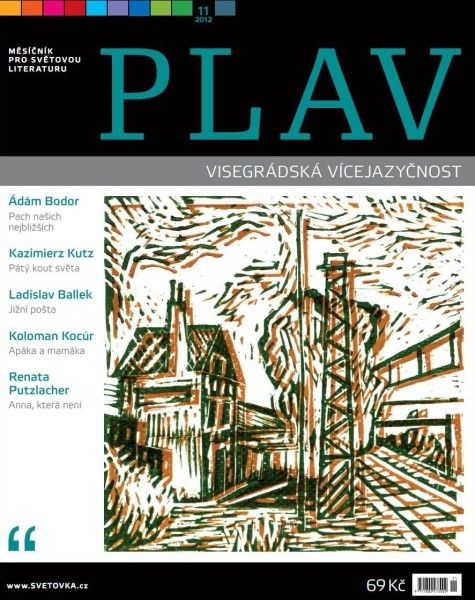
PLAV – More Visegrád Language
- Where: Montmartre Gallery
- When: May 23, 2013, 19:00 – 21:00
PLAV, a monthly dedicated to world literature, has been coming out for eight years now. This time it presents the mutually connected or completely unconnected literatures of the “Visegrád Four”. Texts by Ladislav Ballek, Péter Hunčík, Renata Putzlacher an Ádám Bodor will therefore be read in the course of the evening…
The evening’s hosts, PLAV editors Alexej Sevruk and Vratislav Kadlec, will pull back the veil over Visegrád.
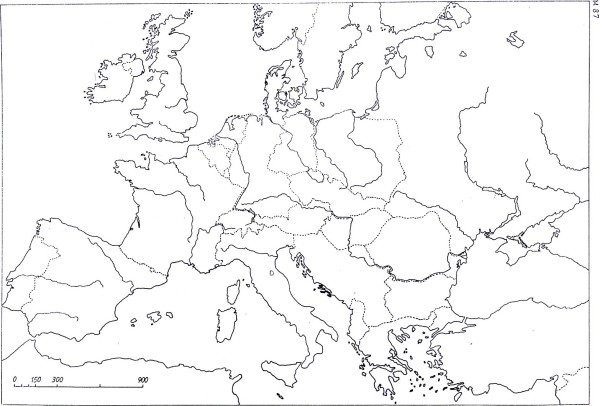
Europe and the Czech Republic 2113
- Where: American Center U. S. Embassy Prague, Tržiště 13, Praha 1
- When: May 24, 2013, 19:00 – 21:00
Conference on the present state and future of European civilisation. The discussion panel will comprise Miroslav Bárta, Jeroným Klimeš, Jan Macháček and Václav Cílek. The conference is taking place in cooperation with Ace Academy.
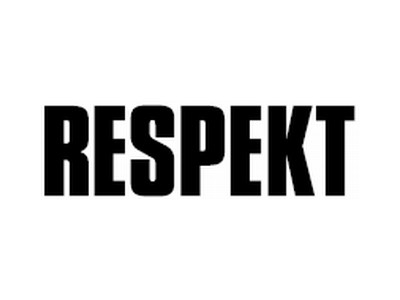
How to Find a Way Forward
- Where: Montmartre Gallery
- When: May 27, 2013, 19:00 – 21:00
Public debate on current affairs with editors from the weekly Respekt.
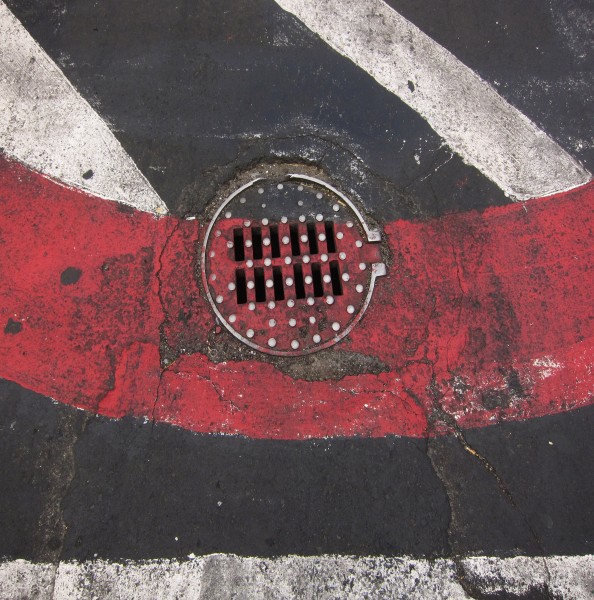
Michal Cihlář: From the Life of Sewers
- Where: Montmartre Gallery
- When: May 28, 2013, 19:00 – 21:00
Opening of an exhibition by Michal Cihlář.
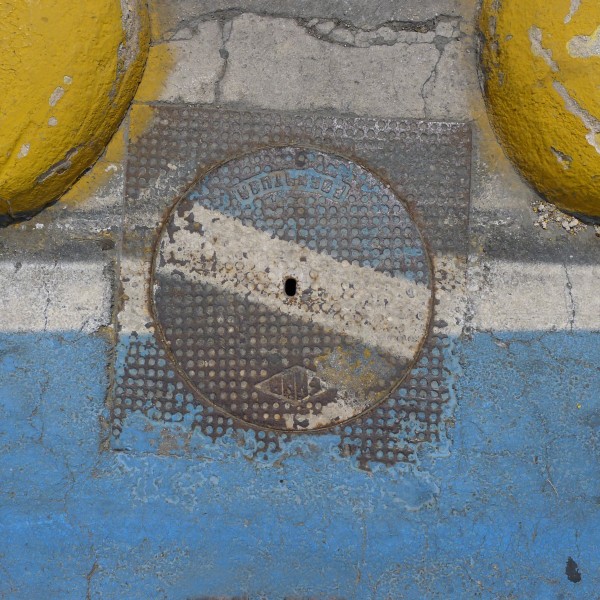
Michal Cihlář: From the Life of Sewers
- Where: Montmartre Gallery
- When: May 28, 2013 – June 30, 2013
Michal Cihlář, an artist mainly known to the Czech public for his colour linocuts and photographs of a series of manhole covers, is showing his work at Galerie Montmartre.
The exhibition is taking place on the occasion of the publication of the monograph Ze života kanálů (From the Life of Sewers), the first title in the authorial series Detail v designu, design v detailu (Detail in Design, Design in Detail). The series, prepared by Michal Cihlář and Veronika Richterová, maps the subjects of their joint photography collections over the years and is issued by the Novela bohemica publishing house.
Michal Cihlář first began to concentrate on the digital photography of sewers 10 years ago, inspired by Viktor Karlík’s prints of manhole covers. However, unlike Karlík, Cihlář records not only their visual form but also their genius loci in a similar manner to, for instance, how photographer Alain Fleischer captured the corners of French streets in the 1960s. Moreover, Cihlář did not remain in Prague’s Smíchov district, but searched for these special stigmata of individual places throughout the world. Since his first photo of a manhole cover in Barcelona in 2002, a collection of thousands of pieces from around 30 countries with its own distinct taxonomy has developed; manhole covers that stand out due to their size, relief, location or use, that are a platform for street art, that connect the world. At the same time, however, this work is not mere documentation. The photographs reference sewers that are often overlooked, whose existence make present and demonstrate the colourful nature of the world we live in.
In the words of Michal Cihlář: “I see manhole covers as points of engagement. I regard them as freckles on the skin of the city whose frequency and variety slightly humanises civilisation. Thanks to this, for me a walk in any direction whatever is full of anticipated discoveries. The best comparison I could make would be to an August walk in a pine forest by an experienced mushroom picker …”
Marianna Placáková
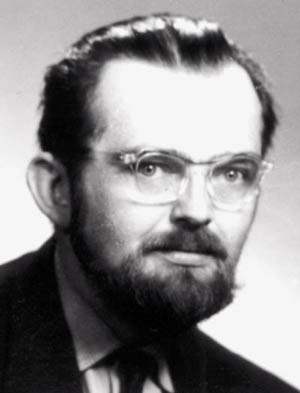
Don’t Forget Jaromír Šavrda!
- Where: Montmartre Gallery
- When: May 30, 2013, 18:00 – 20:00
Early evening dedicated to the creative and moral legacy of the poet, author and political prisoner Jaromír Šavrda (1933–1988), including discussions, recollections, readings and screenings.
The event is being held by Ostrava’s PANT association, which operates the Moderní-Dějiny.cz (modern history) educational website, in cooperation with the Václav Havel Library.
Havel Channel
Havel Channel je audiovizuální projekt Knihovny Václava Havla, jehož cílem je šířit myšlenkový, literární a politický odkaz Václava Havla, bez ohledu na vzdálenost, zeměpisné hranice či nouzové stavy. Jeho páteř tvoří debaty, vzdělávací projekty a rozhovory. Velký prostor je věnován též konferencím, autorským čtením, záznamům divadelních inscenací a koncertům. Audiovizuální projekt Knihovny Václava Havla Havel Channel se uskutečňuje díky laskavé podpoře Karel Komárek Family Foundation.
Publications / E-shop
The central focus of the Library’s publishing programme is the life and work of Václav Havel, his family and close collaborators and friends. For clarity, the programme is divided into six series: Václav Havel Library Notebooks, Václav Havel Library Editions, Student Line, Talks from Lány, Václav Havel Documents, Works of Pavel Juráček and Václav Havel Library Conferences. Titles that cannot be incorporated into any of the given series but which are nonetheless important for the Library’s publishing activities are issued independently, outside the series framework.
Diary IV. 1974–1989
399,- CZK
Foolish Writing
299,- CZK
Havel to the Castle
149,- CZK
Kilián Nedory
199,- CZK
Case for a Novice Headsman
199,- CZK
I am not sad. Audience & Vernissage
129,- CZK
To the Castle and Back
249,- CZK
I am the Gypsy Baron
299,- CZK
Conferences & prizes
Václav Havel European Dialogues
The Václav Havel European Dialogues is an international project that aims to initiate and stimulate a discussion about issues determining the direction of contemporary Europe while referring to the European spiritual legacy of Václav Havel. This idea takes its main inspiration from Václav Havel’s essay “Power of the Powerless”. More than other similarly focused projects, the Václav Havel European Dialogues aims to offer the “powerless” a platform to express themselves and in so doing to boost their position within Europe.
The Václav Havel European Dialogues is planned as a long-term project and involves cooperation with other organisations in various European cities. Individual meetings, which take the form of a conference, are targeted primarily at secondary and third-level students, as well as specialists and members of the public interested in European issues.
Prague 2022Olomouc Prague 2023PragueMnichov 2020Brussels 2020Prague 2019Brussels 2019Prague 2018Brussels 2018Europe at the Crossroads (e-book)Prague 2017Brussels 2017Prague 2016Brussels 2016Prague 2015Brussels 2015Brussels 2014Berlin 2014Prague 2014 - J. GauckBruges 2014Prague 2014
Václav Havel Human Rights Prize
The Václav Havel Human Rights Prize is awarded each year by the Parliamentary Assembly of the Council of Europe (PACE) in partnership with the Václav Havel Library and the Charta 77 Foundation to reward outstanding civil society action in the defence of human rights in Europe and beyond.
11th Year of the Prize (2023)10th Year of the Prize (2022)9th Year of the Prize (2021)8th Year of the Prize (2020)7th Year of the Prize (2019)6th Year of the Prize (2018)5th Year of the Prize (2017)4th Year of the Prize (2016)3rd Year of the Prize (2015)2nd Year of the Prize (2014)1st Year of the Prize (2013)History of the prize
Havel - Albright Transatlantic Dialogues
Since the first Václav Havel Transatlantic Dialogues at GLOBSEC and FORUM 2000 conferences last year, we have lost another stalwart advocate of the transatlantic bond and of the need to face threats to democracy and international order together on both sides of the Atlantic, the former US Secretary of State Madeleine Albright. In view of the close bond between Václav Havel and Madeleine Albright and, after Havel's death, between the Secretary and the Library, the Václav Havel Library, with the approval of Madeleine Albright's family, renamed and rebranded the program as The Havel-Albright Transatlantic Dialogues (HATD), after the two major figures with roots in Central Europe who have personified the bond. Together, Václav Havel and Madeleine Albright symbolize the transatlantic relationship and the fundamental values underpinning it perhaps better than any other two people in recent history. The upcoming Dialogues “The Indispensable Woman: The Legacy of Madeleine K. Albright”, at the FORUM 2000 conference on September 1, and at the “Havel and our Crisis” conference at Colby College, ME, on September 28, will thus become venues for a well-deserved tribute to the pair we all respected and admired.
Transatlantic Dialogues 2021Transatlantic Dialogues 2022HATD 2022 Prague
Václav Havel
Václav Havel
* 5. 10. 1936 Praha
† 18. 12. 2011 Hrádeček u Trutnova
- spisovatel a dramatik, publicista a filozof
- jeden z trojice prvních mluvčích Charty 77
- vůdčí autorita československé společenské změny v listopadu 1989
- poslední prezident Československa a
- první prezident České republiky
- celoživotní zastánce lidských práv a svobod doma i ve světě.
Educational projects
Archive / Documentation centre / Research projects
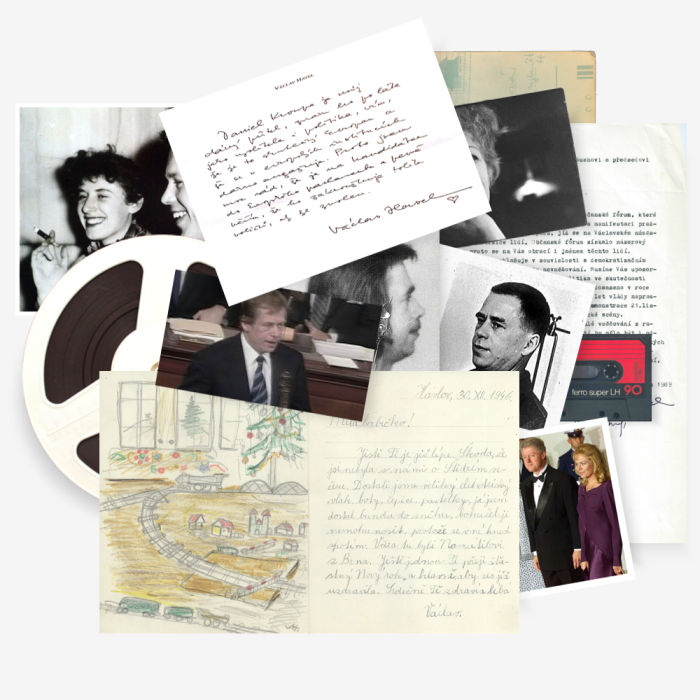
The Václav Havel Library is gradually gathering, digitizing, and making accessible written materials, photographs, sound recordings and other materials linked to the person of Václav Havel.
- 71121 records in total
- 28050 of events in the VH's life
- 2831 of VH's texts
- 2125 of photos
- 403of videos
- 568of audios
- 6602of letters
- 15101of texts about VH
- 8269 of books
- 40737of bibliography records
Access to the database of the VHL’s archives is free and possible after registering as a user. Accessing archival materials that exist in an unreadable form is only possible at the reading room of the Václav Havel Library, Ostrovní 13, 110 00 Prague 1, every Tuesday (except state holidays) from 9:00 to 17:00, or by prior appointment.
We will be glad to answer your queries at archiv@vaclavhavel-library.org.
Sign in (registered users only)
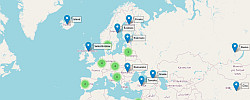
Havel in a nutshell
The virtual exhibition Václav Havel in a Nutshell places the life story of Václav Havel in the broader cultural and historic context in four chronologically distinct chapters with rich visual accompaniment. The exhibition is supplemented by the interactive map Flying the World with Václav Havel, which captures in physical form Havel’s global “footprint”.
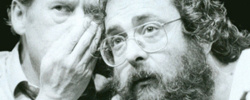
Vladimir Hanzel's revolution
Collage of recollections, images and sound recordings from Vladimír Hanzel, President Václav Havel’s personal secretary, bringing the feverish atmosphere of the Velvet Revolution to life.
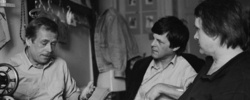
Václav Havel Interviews
A database of all accessible interviews given to print media outlets by the dramatist, writer and political activist Václav Havel between the 1960s and 1989. The resulting collection documents the extraordinary life story of an individual, as well as capturing a specific picture of modern Czechoslovak history at a time when being a free-thinker was more likely to lead to jail than an official public post.
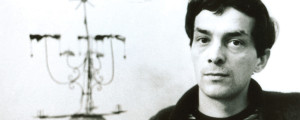
Pavel Juráček Archive
The Pavel Juráček Archive arose in February 2014 when his son Marek Juráček handed over six banana boxes and a typewriter case from his father’s estate to the Václav Havel Library. Thousands of pages of manuscripts, typescripts, photographs, documents and personal and official correspondence are gradually being classified and digitalised. The result of this work should be not only to map the life and work of one of the key figures of the New Wave of Czechoslovak film in the 1960s, but also to make his literary works accessible in the book series The Works of Pavel Juráček.
The aim of the Václav Havel Library is to ensure that Pavel Juráček finds a place in the broader cultural consciousness and to notionally build on the deep friendship he shared with Václav Havel. Soon after Juráček’s death in 1989 Havel said of him: “Pavel was a friend of mine whom I liked very much. He was one of the most sensitive and gentle people I have known – that’s why I cannot write more about him.”
All about Library
The Václav Havel Library works to preserve the legacy of Václav Havel, literary, theatrical and also political, in particular his struggle for freedom, democracy and the defence of human rights. It supports research and education on the life, values and times of Václav Havel as well as the enduring significance of his ideas for both the present and future.
The Václav Havel Library also strives to develop civil society and active civic life, serving as a platform for discussion on issues related to the support and defence of liberty and democracy, both in the Czech Republic and internationally.
The main aims of the Václav Havel Library include
- Organizing archival, archival-research, documentary, museum and library activities focused on the work of Vaclav Havel and documents or objects related to his activities, and carries out professional analysis of their influence on the life and self-reflection of society
- Serving, in a suitable manner, such as through exhibitions, the purpose of education and popularisation functions, thus presenting to the public the historical significance of the fight for human rights and freedoms in the totalitarian period and the formation of civil society during the establishment of democracy
- Organizing scientific research and publication activities in its areas of interest
Podpořte nás
We are well aware that freedom and democracy must be nurtured. Here at Ostrovní 13, but also on the audiovisual platform Havel Channel, we strive to do so through our own educational programmes, talks, discussion meetings, books, exhibitions, concerts, theatre performances. We honour Václav Havel's legacy and wish that the Library be a living organism and open to all. That is why our programme is free of charge for everyone. This would not be possible without regular financial support from our supporters. Become one of them...
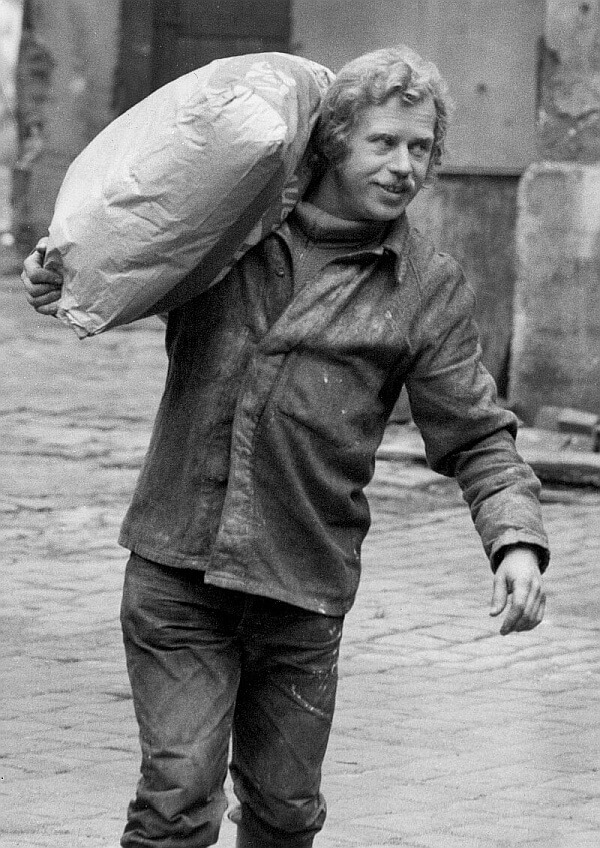
Support us with a financial donation
Does our work make sense to you and do you want to support the activities of the Vaclav Havel Library?
You can easily make a one-time payment by scanning the QR code.
Would you like to contribute regularly? Then we invite you to become a member of the Friends of the Vaclav Havel Library Club. What are the benefits of membership? Find out more.
Help us expand the archive
The Vaclav Havel Library manages an archive of writings, documents, photographs, video recordings and other materials related to the life and work of Vaclav Havel. This archive is predominantly in digital form. If you or someone close to you owns any original texts, correspondence, photographs, speeches or any other work by Vaclav Havel, we would be grateful if you could contact us.
You can donate in other ways too
Supporting a specific charitable or public benefit organization whose activities you appreciate or have been supporting for a long time is also possible through a will. This form of donation is quite common abroad, but in the Czech Republic this tradition is only just taking root.
Share information about us
The Vaclav Havel Library is open to media and promotional cooperation, mutual sharing of links, publishing our banners or information about our events.
For more information, please contact us.
Donations have their rules
At the Vaclav Havel Library, we uphold a transparent, responsible and ethical way of dealing with all those who contribute to fulfilling our purpose and implementing our strategy. Our code of ethics summarizes the basic rules of donations.
Get involved in volunteering
Would you like to get involved as a volunteer? That's great. We welcome anyone who wants to help our work.








